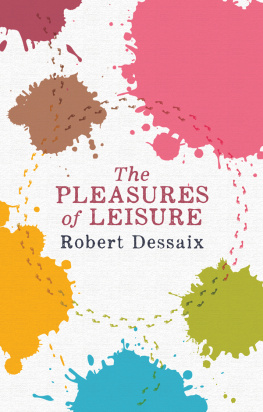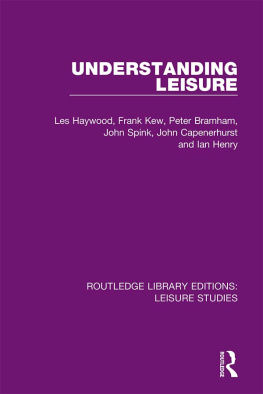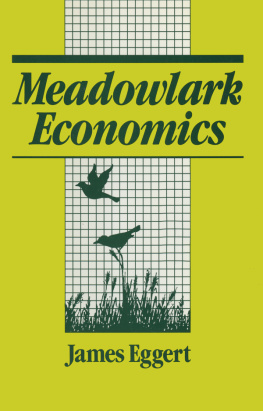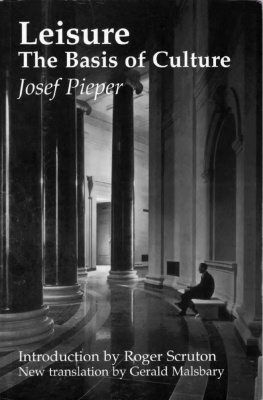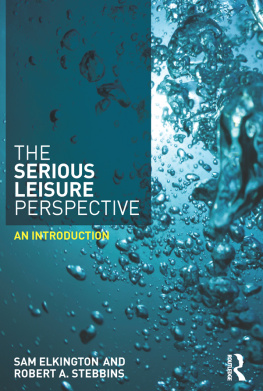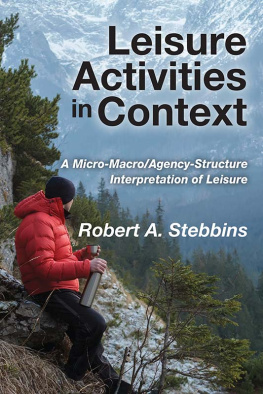About the Book
In todays crazily busy world the importance of making time for leisure is more vital than ever. Yet so many of us lack a talent for it. We are working longer hours, consuming more than ever before; technology erodes the worklife balance further; increasingly, people feel that only work gives existence meaning. In a world where time is money, what is the value of walking without purpose, socialising without networking, nesting when we could be on our laptops?
Robert Dessaix shows, in this thoughtful and witty book, how taking leisure seriously gives us back our freedom to enjoy life, to revel in it, in fact; to deepen our sense of who we are as human beings. He explains how we can reclaim our right to rest well, and to loaf, groom, nest and play, as he looks at leisure from many angles: reading, walking, travelling, learning languages, taking siestas and simply doing nothing. The result is a terrifically lively and engaging conversation that reminds us that at leisure we are at our most intensely and pleasurably human.
Preamble
How do we learn to occupy the great rooms of the hours that open before us each morning? Its as though time itself enters with the light, the first birdsong, saying THERE find something to cover this empty floor, get yourself by some means across to the other side.
Lauris Edmond, Going North, in A Matter of Timing (1996)
There is disquiet spreading rapidly across the globe about empty time. Its hardly new: both the Greeks and the Romans were apt to get edgy about it, punishing laziness with death; even easeful living struck many Romans of the late republic as a kind of dereliction of duty. All of a sudden, though, theres a note of panic creeping into our consternation.
For a start, why is there so little empty time? We were supposed to be awash in it by now technology and progressive politics have been promising us freedom from toil for over a century yet, astonishingly, theres less of it about than in our grandparents day. (Except in Italy, as youd expect.) Paradoxically, the richer we get, the harder we work and the less time we have to do what we want. Whats gone wrong?
Furthermore, what do we want? When we actually find ourselves with a couple of hours or a week or even the rest of our lives to spend precisely as we please, most of us dont know what to do with the unoccupied time. Should we log in to Facebook? Watch the Tigers play the Roosters? Keep bees? Fix the fence? Learn Greek? Stay in bed? Nobody or at least nobody we might look up to seems to be sure. Once upon a time we had Bertrand Russell and John Maynard Keynes offering us advice on the subject, not to mention Jesus and Theodor Adorno, but nowadays theres nobody or nobody with much authority. Alarm is growing apace.
Certain entrepreneurs are busy finding ways to turn this anxiety into money by medicalising it, by selling us yet more technology, or packaging the emptiness up as tennis lessons, say, or trekking or a massage, and selling it back to us at a profit most agreeably in many cases. However, when the mass of humanity in economically developed societies does find itself with a free moment or two, it frequently chooses to sit slumped in front of the television or fiddles with a mobile device. The nobility, needless to say, have never been at a loss for something enlivening to do while others toil on their behalf they gamble, collect art, shoot wild animals, hold charity balls and so on but their ranks are thinning fast. (The rich, we must remind ourselves, are not the nobility by and large theyre not even the gentry.)
In brief, its high time we faced these two critical questions head-on: why, despite all the advances in science and compound interest, in Keynes pithy formulation, is there so little free time in our lives (except in Italy) and why, when vacant time does open up for us, are we so clueless about what to do with it? At the heart of both our inability to jump off the treadmill of toil and our bewilderment about what to do next if we do, lies confusion, I believe, about the meaning of leisure. Does leisure largely mean entertainment? Idleness? Playing sport? Taking up a hobby? Few of us have given it much concentrated thought.
I hadnt really given the matter much thought myself until, in middle age, I read The Talented Mr Ripley . Early on in Patricia Highsmiths novel, Tom Ripley, a sexually ambiguous, amoral con artist from Boston, Massachusetts, becomes a man of leisure (Highsmiths word, not mine) simply by beating young Dickie Greenleaf to death with an oar in a picturesque Italian setting and then embezzling the lavish inheritance. They were quite fond of each other at first, but when Dickie began to tire of Ripley, the relationship soured. After a spate of adventures in exotic locales and two more murders, Ripley goes on in subsequent novels to live a life of elegant ease in a villa near Fontainebleau with a beautiful, wealthy wife of whom he also seems fond, if less so than he once was of Dickie, dabbling when moved to do so in a little murder and fraud, just to keep his hand in.
For people like Tom Ripley and, indeed, like Dickie Greenleaf before him leisure comes naturally. They effortlessly occupy the great rooms / of the hours that open before [them] / each morning without toil or conscience. Both indulge in a little activity for profit from time to time, but mostly they choose to live for pleasure. They live lightly and gayly, to quote the celebrated Chinese thinker and champion of idleness Lin Yutang. Both Russells and Keynes younger contemporary, Lin liked to call himself a loller in English, despite starting and ending his life as a Presbyterian. Scamps was another of Lins favourite words and scamps are exactly what Tom and Dickie are: they both arrive more or less nonchalantly at a keen and intense joy of living. They have a lot more fun than I ever did, yet are far less virtuous.
On reading Highsmiths novel twenty-odd years ago I realised with a start that leisure was something Id never quite got the hang of. I still regret this, although not bitterly. I was certainly never idle: I knew how to fill vacant time usefully and productively, and did. You couldnt have called me a scamp, either, not even on school excursions, and Id never nonchalantly arrived at anything at all (although from an early age, by dint of hard work, I could say nonchalant in several languages). On the contrary, all my life Id cared deeply about ideas, skills and causes, playing no games unless forced to, not even Snap, and certainly not cricket. Playing, as I understood it, was something you did on the piano in as accomplished a fashion as possible. I had no hobbies like the humourless Adorno, Id have been horrified that anyone might consider my pastimes hobbies, mindless preoccupations aimed purely at killing time and I would be hard-pressed to name any hobbies I have now, despite no longer having any objection to hobbies. Is perusing atlases for fun a hobby? Its about all Ive got. I was not a popular boy at school or anywhere else, for that matter. I was a Calvinist, broadly speaking, forever striving to prove by my industry and its fruits that I was one of Gods elect. Like most Calvinists, since I was not idle I could see no good reason why anyone else should be. I blame my mother for this resistance of mine to any idea of leisure to any notion of self-abandonment, really: like Lin Yutang she began and ended her life a Presbyterian, but as a late adoption I only knew her towards the end. For all that, I must emphasise that I was far from joyless: I was a busy little bee. Still, I could have done with less caution. A line from one of Rimbauds poems strictly speaking a knightly lament comes to mind in this regard: Par dlicatesse / Jai perdu ma vie. (Through lack of boldness Ive wasted my whole life.) In reality there was nothing meek or dainty about Arthur Rimbaud, and he hadnt wasted his life by any stretch of the imagination, but the line strikes a chord with me.

